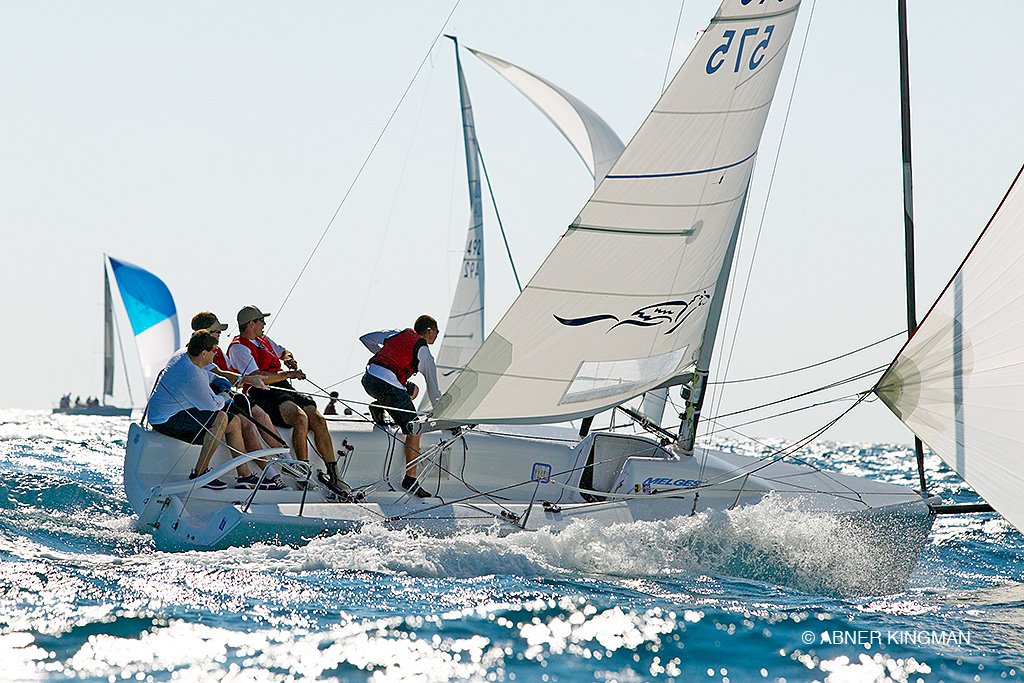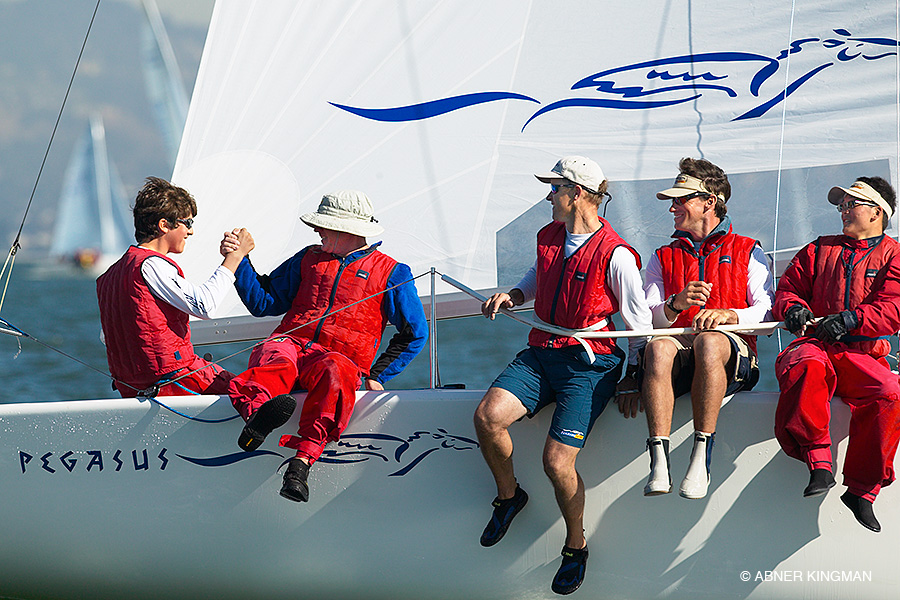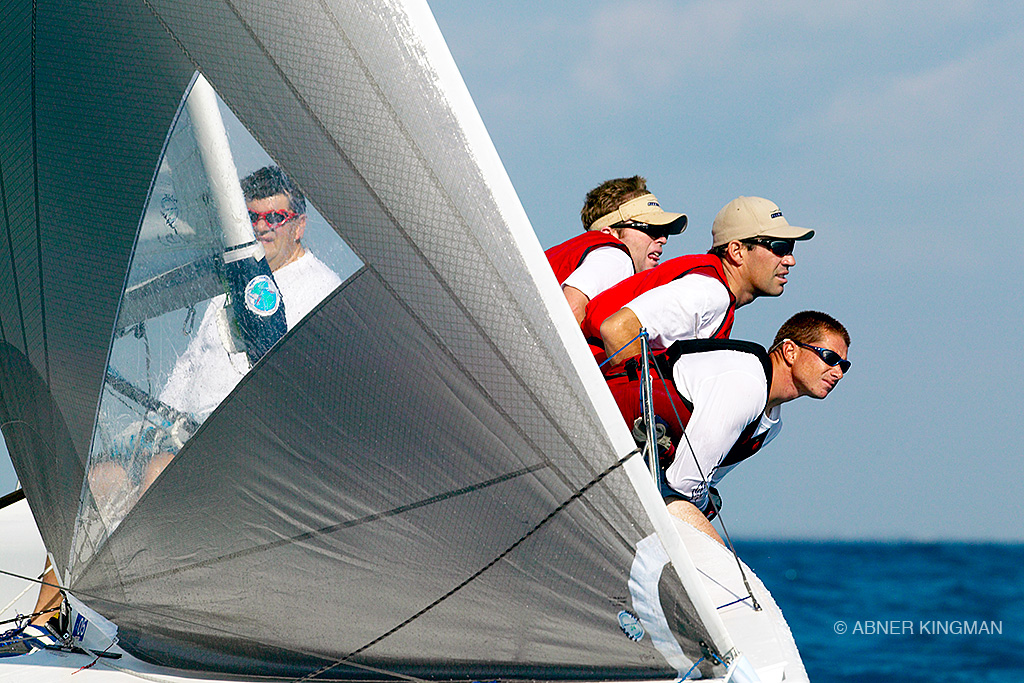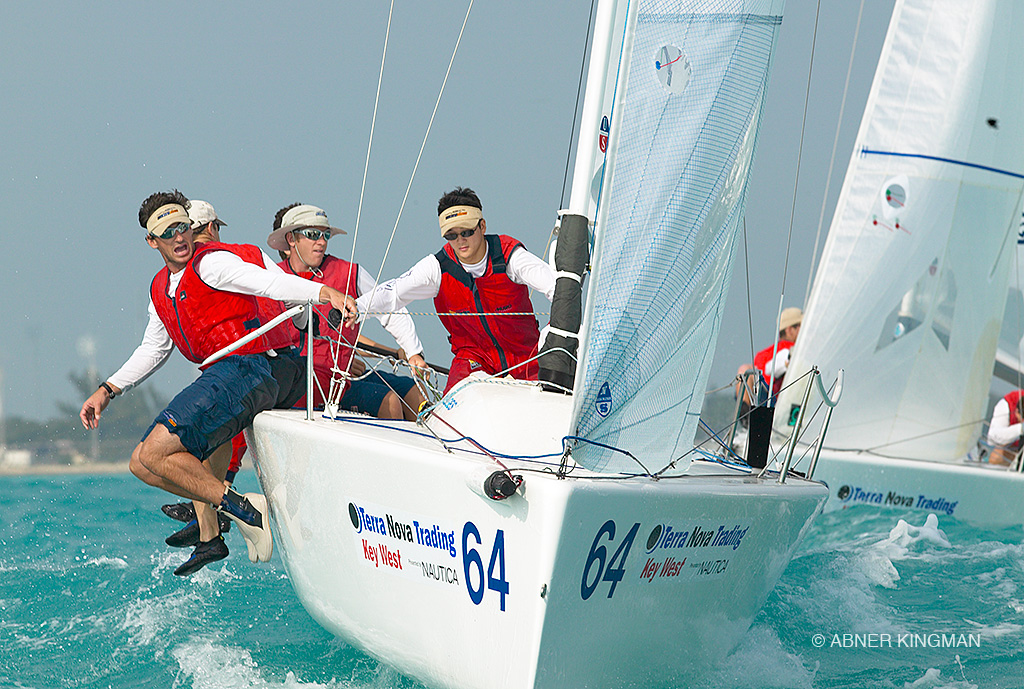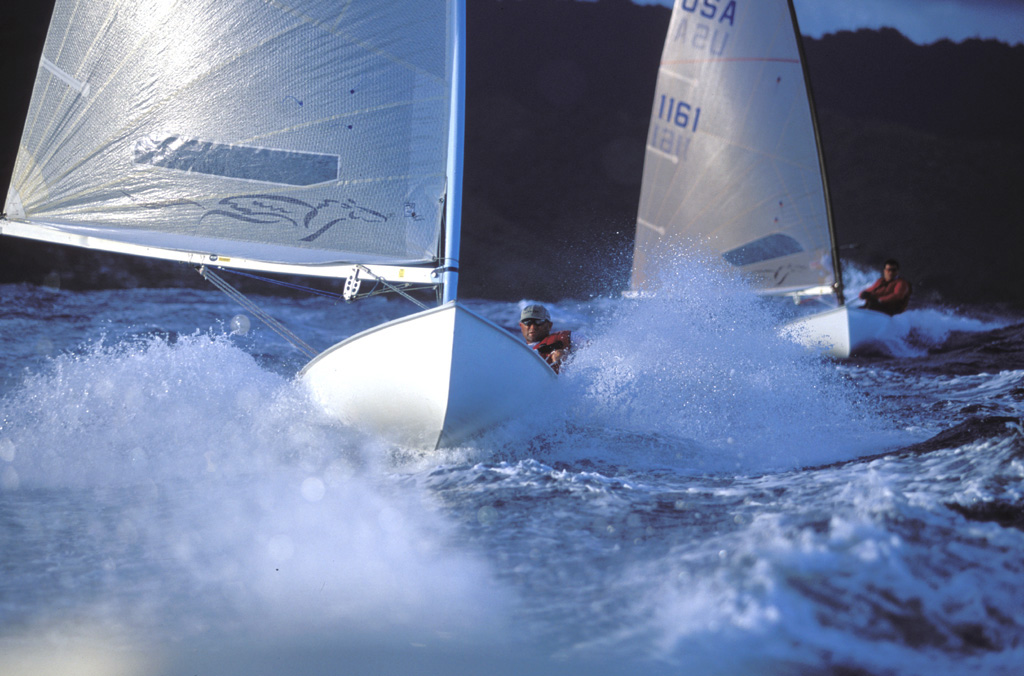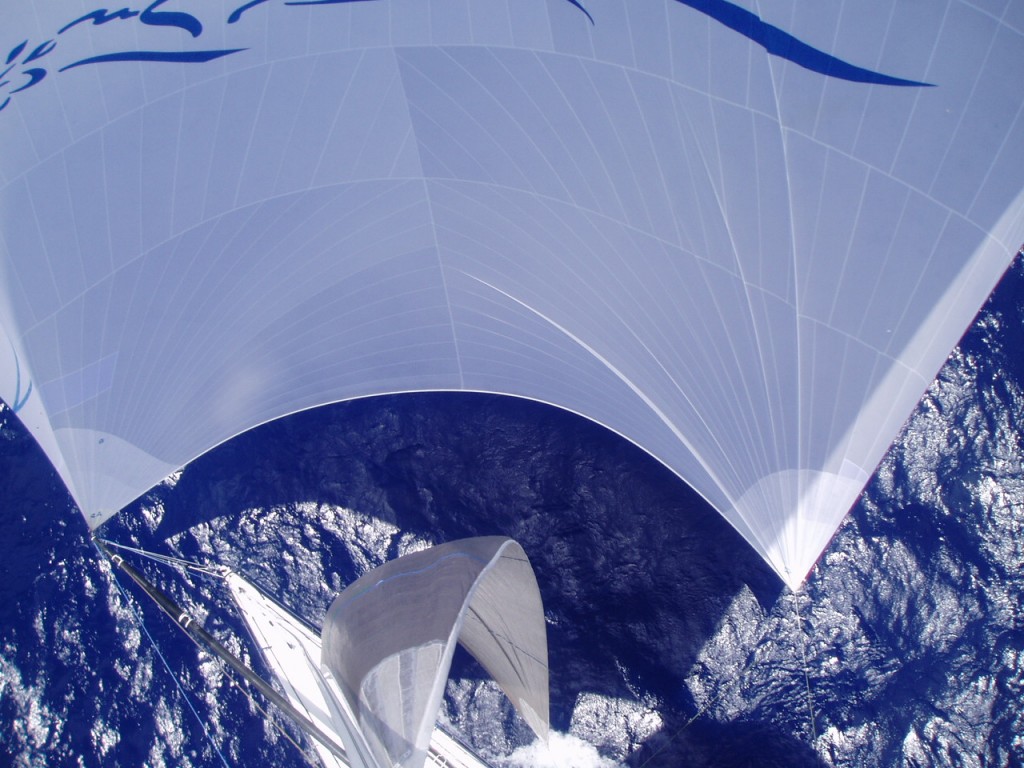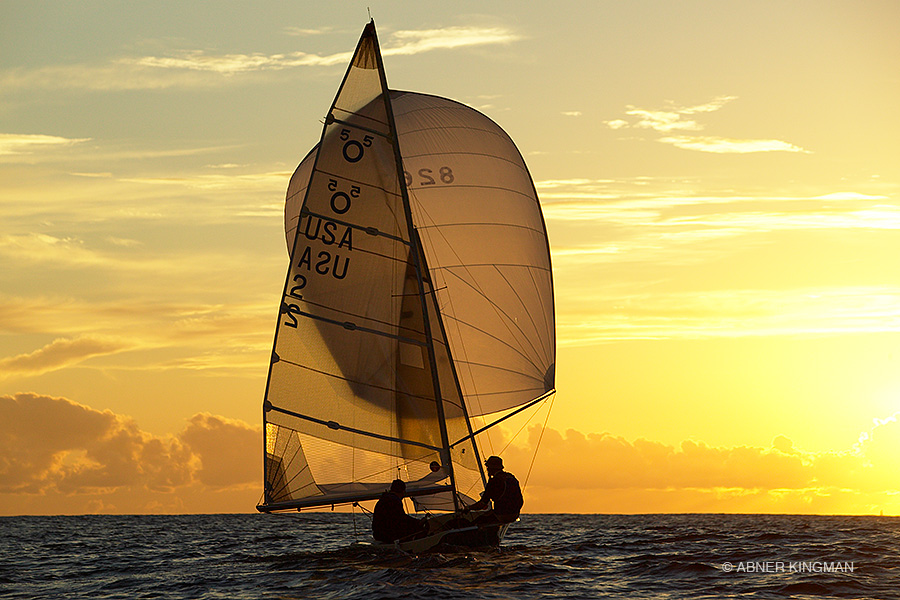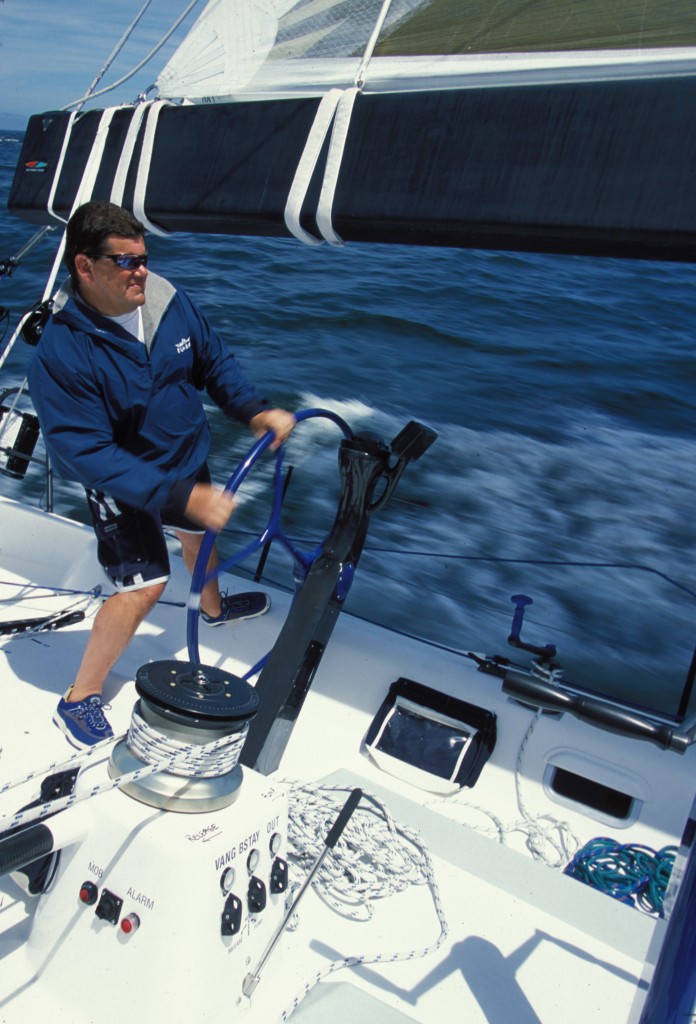Harken/Team McLube Interview with Philippe Kahn
Harken/McLube: What first attracted you to competitive sailing?
Kahn: Performance, teamwork, skills and being out on the open ocean.
Harken/McLube: What attracted your kids? How did you get them interested or Involved in sailing?
Kahn: In our family, we do things together: windsurfing, snowboarding/skiing, and sailing. We focused on fun boats to sail always. After surfing and windsurfing, the first boat that Shark learned how to sail was a Hawaiian sailing canoe that we sailed in the Molokai Channel extensively. Basically, it’s a high-performance beach catamaran that can sail over the reef because it is steered with a paddle and doesn’t have a fixed rudder. In the 20+knots trade winds and the big waves, it was a huge challenge and Shark really got the hang of it by the time he was 12 years old. Then we also crossed the Pacific together three times. The first time he was 11 years old and we raced in Transpac 2001 and beat the full-on Pyewacket with our 11-year-old crew member. Shark was hooked. My older daughters love windsurfing.
Harken/McLube: If a parent were to come to you for advice on how to best introduce a child to sailing (recreational or competitive), what kind of advice would you provide?
Kahn: Make it fun, teach them how to surf and windsurf and get them the feeling of the wind, planning, and of waves. Then all the rest is really easy. It does not take a lot of resources, just a little time. Then one-design is the way to go. They’ll love the ocean the wind and the waves and they’ll be fast!
Harken/McLube: It is quite impressive how much you have accomplished in a relatively short timeframe. Would you share with us your philosophy on training? And perhaps you can explain how you work with Shark and your other team members who are training as well?
Kahn: We focus on teamwork, positive attitude and performance. We focus on developing skills and not on the results. Our goal is never to win but to learn to sail better. We probably enjoy the training just as much as the racing and that’s fun. I’m lucky enough that by working a bit earlier in the morning and later at night, I can often get out on the water for three hours doing weekdays, right after Shark gets out of school. When we get back he focuses on homework and I focus on LightSurf. We also work out together five times a week.
Harken/McLube: You have a very unique perspective having experience racing both in point-to-point offshore formats and on the small boat one design courses. Both offer very different experiences. What do you find enjoyable about the two formats? Can you compare the two? Which format attracted you to sailing first and why?
Kahn: I really like tight racing where it’s a skill that determines the outcome more than an arm’s race. That’s why I love one design. A good box rule could do similar things offshore. In Transpac 2001 and 2003 we had very well-matched boats between Pegasus and Pyewacket and that made offshore sailing lots of fun: It came down to skills and smarts, so as long as it is one-design or very close I love it whether it’s around the buoys or offshore.
Harken/McLube: What is it about sailing that you like to share with your family?
Kahn: Sailing is a great way to all share the same passion. Sailing brings us together and fits right into our outdoors lifestyle. It goes hand in hand with what we love to do: surfing, windsurfing, snow-boarding/skiing etc…
Harken/McLube: What other sports and activities do you like to do as a family?
Comparing these two types of sports, how do you think we can grow participation in sailing?
Kahn: When you show a kid an Optimist, they think that it’s a floating bathtub. It’s a great platform to learn a certain type of sailing. But sailing has to become more like the X-Games and that’s why we must promote windsurfing, kite-boarding, skiff sailing and capture the imagination of the kids. Times have changed and the platforms need to change. Speed and adrenaline will bring sailing to the masses.
Harken/McLube: Philippe, you have established impressive track records in business as well as sailing. Many well-respected individuals believe that sailing is a metaphor for business or life in general. Do you agree with this hypothesis?
Kahn: I fully agree: Succeeding in business is just like sailing, it’s about teamwork, having a positive attitude, and performance. Some people succeed with only some of these qualities. But to repeat success multiple times in multiple businesses and not just “milk an initial lucky coup”, it takes the same thing as winning in multiple classes and disciplines in sailing.
Harken/McLube: Do you feel that there are any parallel guidelines to success or philosophies that you feel were directly transferable or particularly helpful to you in both business and sailing? Can you share your thoughts on this, please?
Kahn: In business, you want to build to last. You want to make sure that you are building a company that will be there for the long term, not just a flash in the pan. This means building a solid team where people are accountable and responsible. Where there is mutual respect, strong leadership and vision, and a tremendous energy to win together. Then there is a lot of hard work and focus as well as self-discipline. Luck is important, but it’s strange how the harder you work, the luckier you get!
